Mullins L.J. Management and organisational behaviour, Seventh edition
Подождите немного. Документ загружается.


Based on experience in a broad range of organisations, Steele suggests nine questions to
help managers assess the performance of their companies. These questions have been
submitted to approximately 125 different groups of managers from all industries –
manufacturing, banking, retail and general commerce. Although the questions are not
exhaustive and not intended to be a panacea, there has been full agreement that they
are a reasonable list of questions for assessing organisational effectiveness.
1What is the attitude to change?
2 What is the degree of trust in the management’s view of the workforce, is there a
them and us mentality?
3 Really a manifestation of Question 2 – how much management information, especially
financial, is communicated?
4 How visible and accessible is management, especially top management?
5 What is the atmosphere like in the organisation? Focusing on more specific areas to
help identify the quality of an organisation’s atmosphere:
(a) What do people believe about the organisation?
(b) How much control exists?
(c) Is there a fear of failure?
(d) Do people feel free to talk back?
(e) Is there a fun atmosphere in the organisation?
6 How frequently are people rewarded and recognised?
7What is the posture and prowess of the first point of customer contact?
8 Is customer service actively measured and the results communicated widely?
9Do people have an appropriate purpose?
96
Based on the concept of business process re-engineering, Rummler and Brache propose a
framework for the improvement of organisational performance. They contrast the tra-
ditional, functional view of the organisation as represented by the organisational chart
with a more descriptive and useful systems approach; and put forward a methodology
based on three levels of performance and the management of the white spaces between
the boxes on the organisation chart.
97
■ The organisational level – the basic ‘skeleton’ of the major functions which com-
prise the organisation and its relationship with its market. Variables affecting
performance at this level include strategies, corporate goals and measures, structure
and deployment of resources.
■ The process level – looking beyond the functional boundaries which make up the
organisation chart, and examining the workflow and how work actually gets done.
To manage performance variables at this level it is necessary to ensure processes are
installed which satisfy customer needs.
■ The job/performer level – involving performance variables such as recruitment,
promotion, job responsibilities and standards, feedback, rewards and training.
CHAPTER 23 MANAGEMENT DEVELOPMENT AND ORGANISATIONAL EFFECTIVENESS
975
Widely used, comprehensive, developmental, addressing the needs of all stakeholders the
EFQM Excellence Model is already playing an important role in improving competitiveness,
levels of service and shareholder value across Europe. Providing a common language with
significant benchmarking opportunities and role model exmaples, it is set to be the defin-
ing model of the 21st century.
MelFarrar, Associate Director, Public Sector Development Excellence North West
95
ASSESSING ORGANISATIONAL PERFORMANCE
Managing the
white space
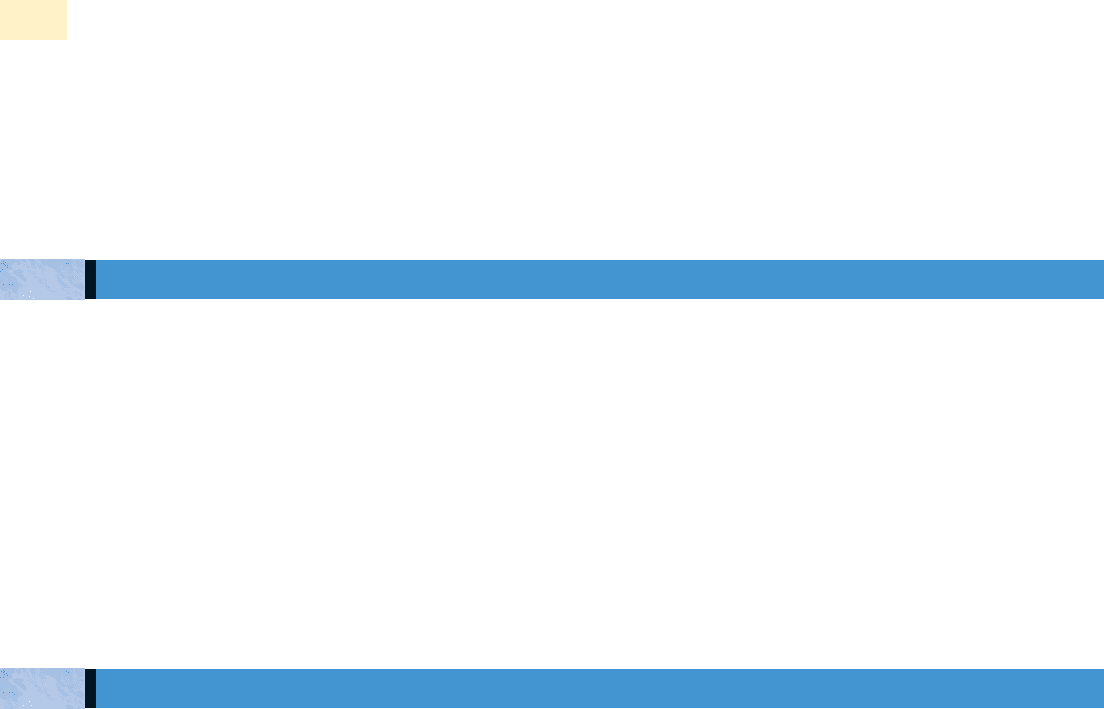
Rummler and Brache suggest that overall performance of the organisation and how
well it meets the expectations of its customers are the result of goals, structures and
management at all three levels. The three levels represent an anatomy of performance
and Rummler and Brache draw attention to the importance of measuring performance
and designing a performance management system.
■ If performance isn’t being measured, it isn’t being managed.
A programme of organisation audit (or management audit) involves a review of the
operations of the organisation as a whole and an examination of the full range of man-
agement activities, including the effective use of human resources. Organisation audit
is concerned with the identification of problems which are encountered in achieving
organisational goals and disparities between strategy formulation and policy decisions,
and actions necessary for their successful implementation.
Such a review may be undertaken by members of the organisation, external consult-
ants on organisation and management, or a combination of both internal members
and external consultants. Organisation audit tends to be concerned more with the cur-
rent state of the organisation, and with what must be done now in order to meet set
objectives and targets. But an organisation must also be properly prepared to face the
demands of a changing environment. It must give attention to its future development
and success.
An increasingly popular management technique is that of ‘benchmarking’. The premise
behind benchmarking is simple. ‘If you want to improve a particular aspect of your
organization or service it provides, find someone else who is good at the activity and
use them as a benchmark to raise your own standards.’
98
This can vary from an infor-
mal or casual look at how other companies are performing, gathering information
about other company’s best practices, to an in-depth investigation of a company’s per-
formance compared with that of its major competitors. With large organisations
benchmarking may also be undertaken internally with a comparison between different
divisions, units or locations. This is a common practice in universities, for example,
with comparisons between different faculties or schools. From a review of benchmark-
ing techniques, Barnes concludes that although external benchmarking has a role to
play in raising business performance it should be used with care, and only after consid-
ering the circumstances and contingencies in the organisation involved.
99
According to Modena, benchmarking is one of the key tools for learning and enables
forward-looking organisations to measure their performance against the best in the
business. It should cover a balanced portfolio of practices and capabilities to bring
about both short- and long-term success.
100
Bishop suggests that although benchmark-
ing remains a vital first step in evaluating and measuring performance, its real value
comes when it is applied in a consistent and ongoing way, and that it is not only of
value for large corporations. The Small Business Service, an agency of the DTI, has
developed a Benchmarking Index specifically for small to medium-sized enterprises for
which it can bring real, tangible benefits and overall business improvement.
101
976
PART 8 IMPROVING ORGANISATIONAL PERFORMANCE
ORGANISATION AUDIT
BENCHMARKING
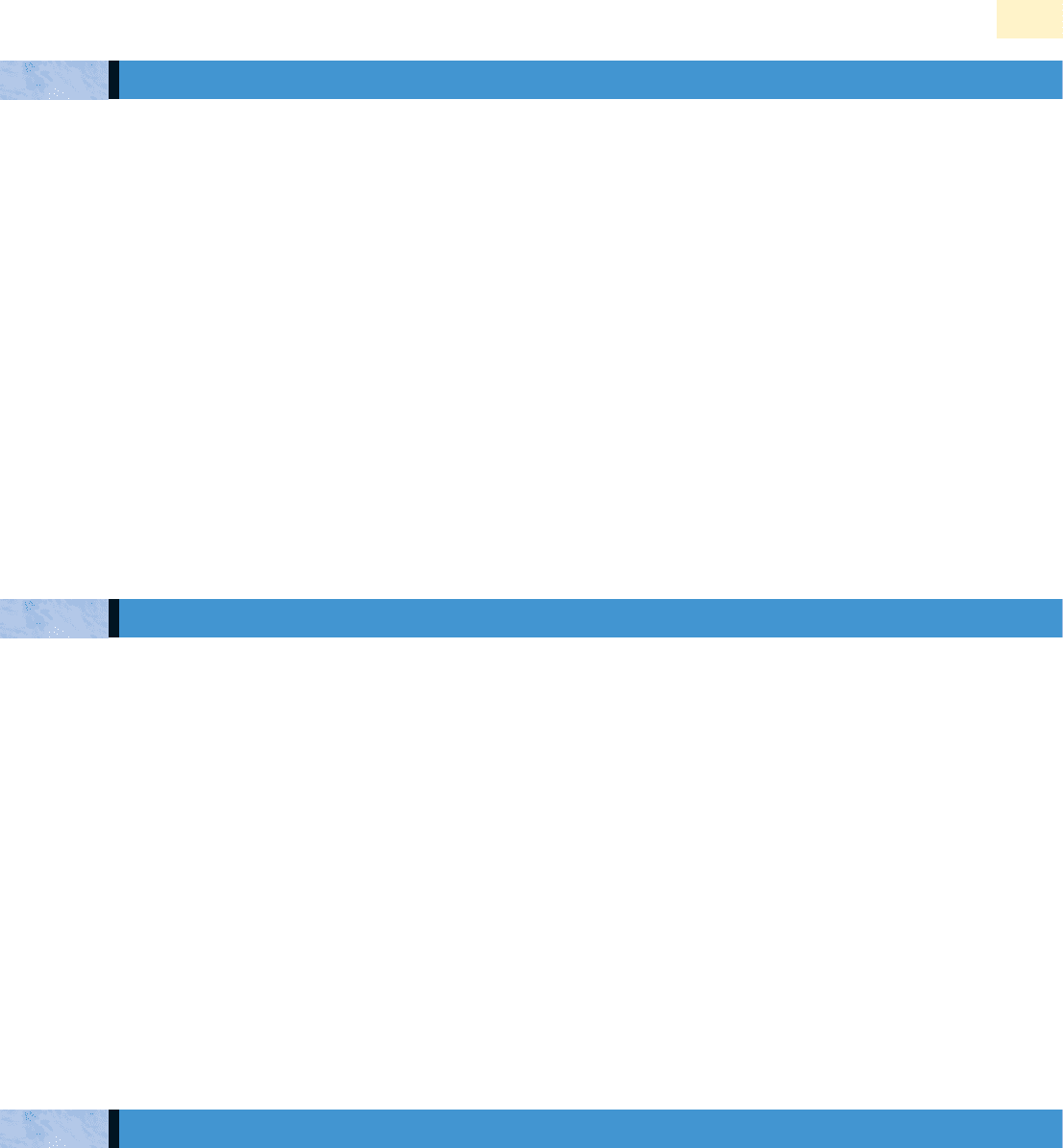
In earlier chapters we have referred to the nature of management in public sector organ-
isations, and to the increasing scale of privatisation and strategic developments. This has
led to growing attention to public accountability for their operations and to the measure-
ment of their performance and standards of service delivery, including a wide range of
performance indicators.
102
Prowle, for example, discusses the use of performance indica-
tors to measure the three ‘Es’ of effectiveness, economy and efficiency. Performance
indicators have developed from relatively uncontentious areas concerned with manually
intensive support services such as cleaning costs, to administrative services such as, for
example, cost of invoice paid or cost per client complaint; and front-line services such as,
for example, survival rates from surgical treatment in NHS trusts.
In general, performance indicators provide information that cannot be used in an
absolute sense but instead it is important to have meaningful and useful comparators
against which performance can be compared. Two main types of comparative
approaches are intra-organisation comparisons, to compare performance of one part of
the organisation with another part; and inter-organisational comparisons, to compare
the performance of an organisation as a whole with that of another organisation.
However, as Prowle points out, for performance indicators to be effective it is import-
ant that they are used within an effective performance management framework, and
that only by investigating reasons for unsatisfactory performance and taking remedial
actions can performance indicators be of any real value.
103
Gap analysis involves an investigation of the gap between the vision, objectives and
goals of the organisation and actual levels of performance, and establishing the actions
necessary to bring activities in line with that which is planned. Ittner and Larcker refer
to the large quantity of non-financial measures that most companies track, and the
extent to which such measures are aligned with the company’s strategies and value
drivers. One method for assessing this alignment is ‘gap analysis’ which requires man-
agers to rank performance on at least two dimensions: their importance to strategic
objectives and the importance currently placed upon them.
104
Gratton refers to the importance of a collective understanding and vision of what the
organisation is capable of achieving, expressed as short-term goals and as a long-term
vision; and to creating superior performance through inspired and committed people.
The short-term business goals and long-term vision create a broad strategic agenda and an
understanding of where the organization should be heading. But to make these goals a reality
there must be a more clearly defined awareness of what has to be achieved. The pathway of
action comes from the second element, the gap analysis, which creates a deep understanding of
the gap between current capability and the desired state. The extent of this gap is the basis for a
shared understanding of what needs to be achieved, and potentially the energy for the jour-
ney.
105
(See Figure 23.9.)
There is a wide range of interrelated individual, group, organisational and environmen-
tal influences on behaviour in work organisations, and therefore many different
criteria which might be applied as part of an attempt to assess organisational perform-
ance and effectiveness. In addition to those discussed in the last two chapters, we can
mention some examples that have been discussed in previous chapters of this book:
CHAPTER 23 MANAGEMENT DEVELOPMENT AND ORGANISATIONAL EFFECTIVENESS
PERFORMANCE INDICATORS IN THE PUBLIC SECTOR
GAP ANALYSIS
A RANGE OF DIFFERENT CRITERIA
977
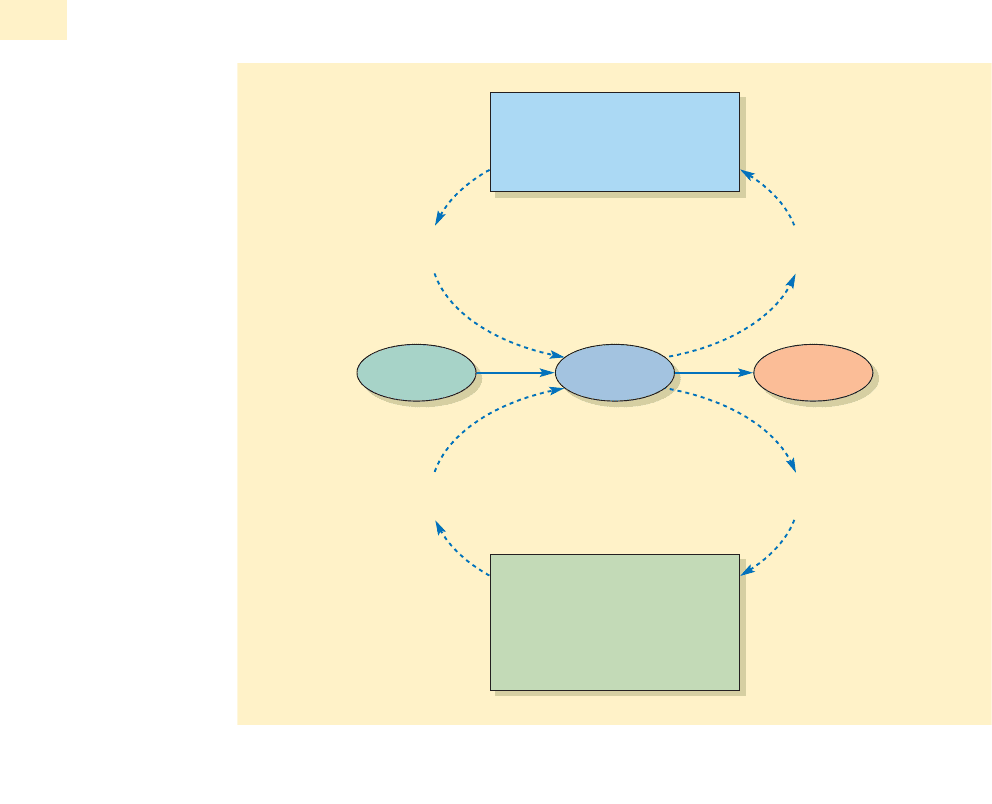
■ Open systems framework – an organisation may be analysed in terms of an open
systems framework: inputs; the series of activities involved in the transformation or
conversion process: outputs; interactions with the environment; and performance of
the system (organisation) in achieving its aims and objectives. The organisation may
also be examined in terms of interrelated sub-systems, for example tasks to be
undertaken, technology employed, formal structure, behaviour of people and the
process of management. The state of the sub-systems will reflect upon the effective-
ness of the organisation as a whole.
■
Key areas of performance and results – the extent to which the goals of the organisa-
tion are pursued in accordance with an underlying ideology, codes of behaviour, sets of
principles, and ethical and organisational foundation. The effectiveness of an organisa-
tion might be assessed against Drucker’s eight key areas in which objectives need to be
set in terms of business performance and results: market standing; innovation; produc-
tivity; physical and financial resources; profitability; manager performance and
development; worker performance and attitude; and public responsibility.
■ Design of organisation structure – one of the most significant factors which deter-
mine effective organisational performance is the correct design of structure. Part of
the attempt to gauge organisational effectiveness could involve a review of structure
to assess the extent to which it aids the process of management and the execution
of work. In particular, does the structure harmonise with organisational goals and
978
PART 8 IMPROVING ORGANISATIONAL PERFORMANCE
PerformanceGap analysis
Business
goals
Long-term levers
•Transforming leaders
•Transforming the workforce
•Transforming the organisation
Long-term
cycle
Long-term
people strategy
Scanning
future capability
Short-term
cycle
Short-term
people strategy
Scanning
current capability
Short-term levers
• Recruitment and selection
• Performance objectives
• Performance metrics
• Reward and recognition
• Short-term training
Figure 23.9 Gap analysis and the people process model
Reproduced with permission from Gratton, L. Living Strategy: putting people at the heart of corporate purpose, Financial Times Prentice Hall
(2000), p. 101, with permission from Pearson Education Ltd.

objectives, and maintain the balance of the socio-technical system? How flexible is
the structure and how effective is the ‘fit’ between structure, systems of manage-
ment, the behaviour of people and situational variables?
■ Profile of organisational characteristics – the overall effectiveness of an organisa-
tion could also be gauged against Likert and Likert’s profile of organisational
characteristics, and the extent to which these meet the fundamental concepts of
System 4 (participative group) management practices, that is: the principle of sup-
port relationships; group decision-making, and methods of organisation and
supervision; and high performance aspiration for all members of the organisation.
The human organisation and operation of the firm can be examined in terms of the
relationships among causal, intervening and end-result variables.
■ The role of management – there are also a number of criteria which could be
applied, more specifically, to an evaluation of the essential nature and role of man-
agement. The activities of management could be judged, for example, against
Bourn’s set of ten interrelated activities; against Mintzberg’s set of ten integrated roles
which comprise the essential functions of a manager’s job; or against Kotter and
Cohen’s key activities of agenda-setting and network-building. Style of management
could be assessed, for example, by the Blake and Mouton Leadership Grid in terms of
an appropriate mixture of concern for production and concern for people.
■ Managerial effectiveness – this could be gauged against Stewart’s checklist of ques-
tions for managers. It can be evaluated by Reddin’s three-dimensional model of
managerial behaviour: task orientation, relationship orientation and the demands of
the situation; or by Langford’s criteria of: the manager’s work; the manager
himself/herself; the manager’s relationship with other people; the manager as part of
the organisation; and a single overall criterion of general effectiveness. In more gen-
eral terms managers are judged not just on their own performance but by the actual
results achieved by subordinate staff.
■ Contribution of the HRM function – which could be gauged by taking account of
intangible benefits such as the morale and job satisfaction of staff, as well as their
attitudes, behaviour and performance; and quantified measures including staffing
costs, turnover and stability indexes, staff development, errors in work, discipline or
grievance hearings, employment tribunal cases, complaints from suppliers or cus-
tomers. HR policies could be judged by full observance of all laws and codes of
conduct relating to employment, and respect for ethic dimensions. The overall effec-
tiveness of the HRM function could be assessed by the establishment of good HR
policies and employment relations, for example by comparison against Browning’s
ten key factors, and the extent to which it makes a positive contribution to meeting
the objectives of the organisation.
■ Organisational control systems – the effectiveness of organisational control sys-
tems can be gauged by the extent to which they draw attention to the critical
activities which are important to the overall success of the organisation. To what
extent do control systems provide an effective means of checking progress to deter-
mine whether the objectives of the organisation are being achieved, and help lead to
an improvement in performance? Are structures of control congruent with power
and involvement, and the means of ensuring compliance among members?
A final word of caution
As any student of management or reader of this book will have realised, there is no
shortage of ideas on how to improve organisational performance. Understanding the
latest concepts and pronouncements of leading management writers is a part of a man-
ager’s development, and there clearly are potential benefits to be gained both for the
individual and the organisation. Crainer suggests, however, that there is a growing
CHAPTER 23 MANAGEMENT DEVELOPMENT AND ORGANISATIONAL EFFECTIVENESS
979
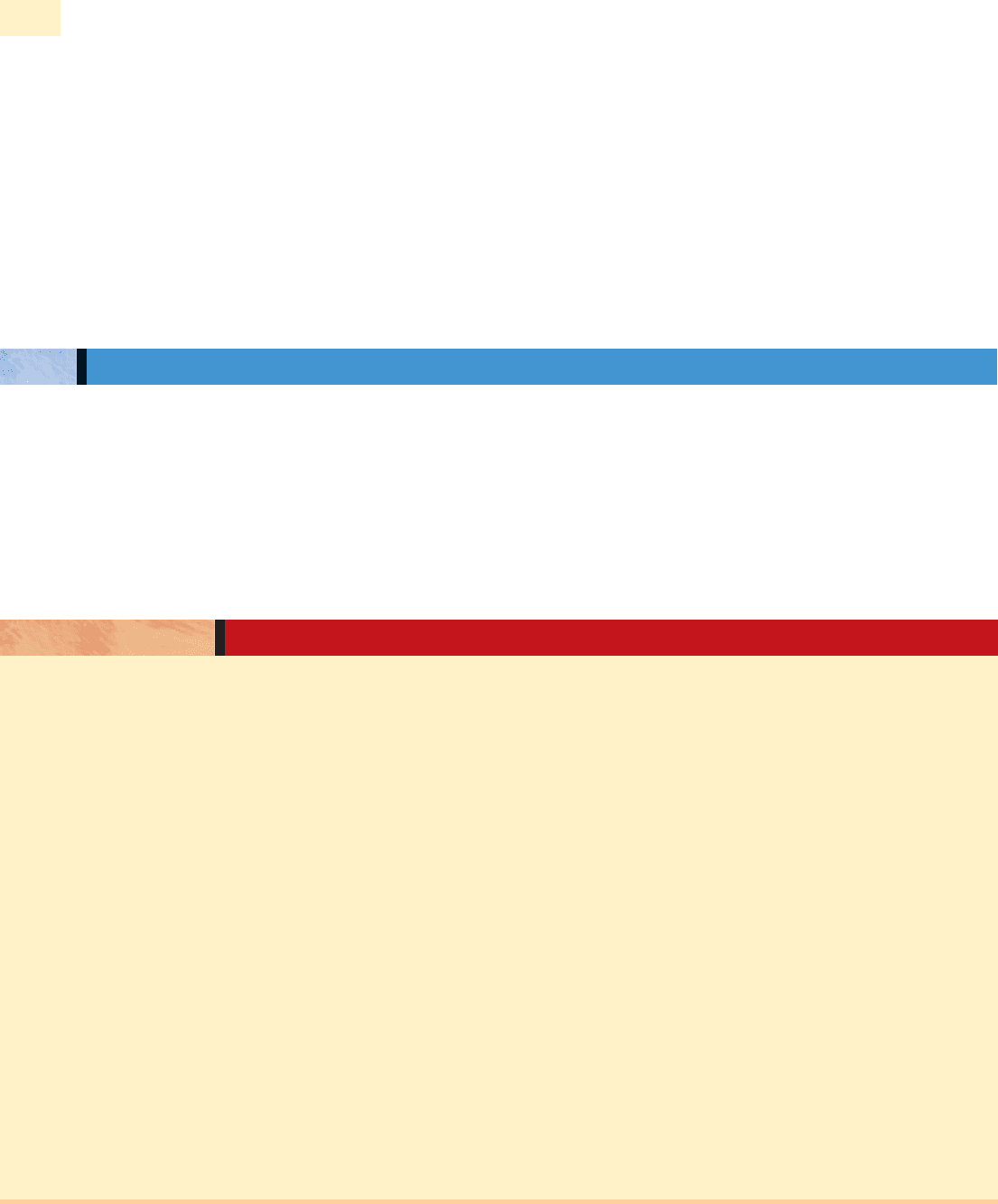
disillusionment with the pedlars of managerial wisdom. Perhaps they should be treated
as sources not of solutions but of inspiration.
Instead of seeking out approaches which are appropriate to their businesses, managers appear
in perpetual search of the holy grail of management. It is not that these various ideas – whether
re-engineering, empowerment or TQM – are poor concepts. Many do work, but not if they are set
in tablets of corporate stone. They have to be open to be flexible interpretations, and used when
needed, rather than as all-encompassing ‘solutions’. Becoming the slavish disciple of a particu-
lar managerial luminary is likely to end in commercial disaster.
106
An account of ‘Building Organisational Competence’, including the nature of
change, by the European Work Organisation Network is given in Management in
Action 23.4.
By way of a conclusion to this final chapter of Management and Organisational
Behaviour, we can do no better than to reflect upon the words of Subir Chowdhury in
his discussion of the twenty-first century organisation.
A 21st century organization’s success will depend on the effective use of talented people. Talent-cen-
tered organizations will constantly search for the new talent, keep them by satisfying their needs, use
them effectively, and create a challenging environment for them to work in. People create organiza-
tions and people can destroy them. The most valuable commodity in business is not technology or
capital but people. The driving force behind a 21st century organization will be its people.
107
980
PART 8 IMPROVING ORGANISATIONAL PERFORMANCE
THE TWENTY-FIRST CENTURY ORGANISATION AND PEOPLE
CRITICAL REFLECTIONS
‘Despite all my studies of organisational behaviour it is difficult to find single right answers to
improving performance at work. And the effective management of people now seems to be more
involved than I ever thought. So what’s the point?’
‘But don’t you see – that is exactly the point. You now have a better understanding of the com-
plexnature of management and organisational behaviour, and attempting to relate theory
to practice.’
What are your own views?
In developing a more embodied understanding of managing, we treat managers as human
beings who grapple with a panoply of personal as well as professional issues. Personal experi-
ences are part and parcel of managerial work. They are no less relevant for an understanding of
managerial practice than the activities they undertake.
Knights, D. and Willmott, H. Management Lives: Power and Identity in Work Organizations, Sage Publications (1999), p. 24.
How would you attempt to take due account of both managers’ personal experiences
and their professional issues in developing a more embodied understanding of manage-
rial practice?
‘Many organisations waste a fortune paying for the development of staff and then prevent them
from using their new ideas in practice.’
Debate.

■ The quality of management is one of the most important factors in the success of
any organisation. There is, therefore, a continual need for managerial development as
an integral part of the process of organisation development. Using accumulated know-
ledge of management theory it is possible to construct an integrated model of
managerial behaviour and development. Attention needs to be given to the process of
management development, including performance review, training and learning, man-
agement succession planning and career progression. Management development
should be seen as a continuous process and involves managers accepting responsibility
for self-development.
■ Two major reports sponsored by the Institute of Management highlighted the
importance of, and shortcomings in, management education, training and develop-
ment in Britain. These reports were instrumental in the establishment of the
Management Charter Initiative which has championed the competence-based
approach to management development and the creation of Management Standards.
Following demand from employers and government, Investors in People UK created a
new Leadership and Management Model which is a development framework for ensur-
ing organisations create, manage and invest in effective leadership.
■ There are a multiplicity of variables which impinge on any one organisational situ-
ation and which illustrate the complicated nature of the study of organisational
effectiveness. One approach to organising is the McKinsey 7-S framework of inter-
dependent organisational variables – structure, strategy, skills, staff, style, systems and
shared values. In his study of companies and managers seeking to create the European
future, Heller identifies ten key strategies in search of their own brand of excellence.
The study by Goldsmith and Clutterbuck of top-performing companies draws attention
to the balance between the ability to exert control and give autonomy.
■ A key factor in organisational effectiveness is the successful management of change
and innovation, and the concept of the learning organisation. One particular approach
to improved organisational effectiveness is Total Quality Management (TQM). The suc-
cessful organisation should as a matter of policy be constantly seeking opportunities to
improve the quality of its products and/or services and processes. People are the key if
TQM initiatives are to succeed. Another concept to have received much attention is
Business Process Re-engineering. This involves a fundamental rethinking of business
processes, and a radical approach to organisational change and restructuring.
■ Tomorrow’s Company promotes an inclusive approach and the EFQM proposes a
model of excellence for leading to improved business results. Based on experience in a
broad range of organisations, Steele suggests nine questions to help assess organisational
effectiveness. Rummler and Brache propose a methodology based on three levels of per-
formance: organisational; process; and job/performer. There are, however, a wide range
of interrelated individual, group, organisational and environmental influences on
behaviour in work organisations. Accordingly there are many different criteria which
might be applied in attempting to assess organisational performance and effectiveness.
■ An organisation may be analysed in terms of an open systems framework; it may
be assessed in terms of key areas of performance and results, design of organisation
structure, or against a profile of organisational characteristics. There are also a number
of criteria which could be applied more specifically to an evaluation of the role of man-
agement and managerial effectiveness. A programme of organisation audit involves a
review of the operations of the organisation as a whole. However, in addition to con-
cern for the current state of the organisation, attention must be given to its future
development and success. The driving force behind the successful twenty-first century
organisation will be its people.
CHAPTER 23 MANAGEMENT DEVELOPMENT AND ORGANISATIONAL EFFECTIVENESS
SYNOPSIS
981
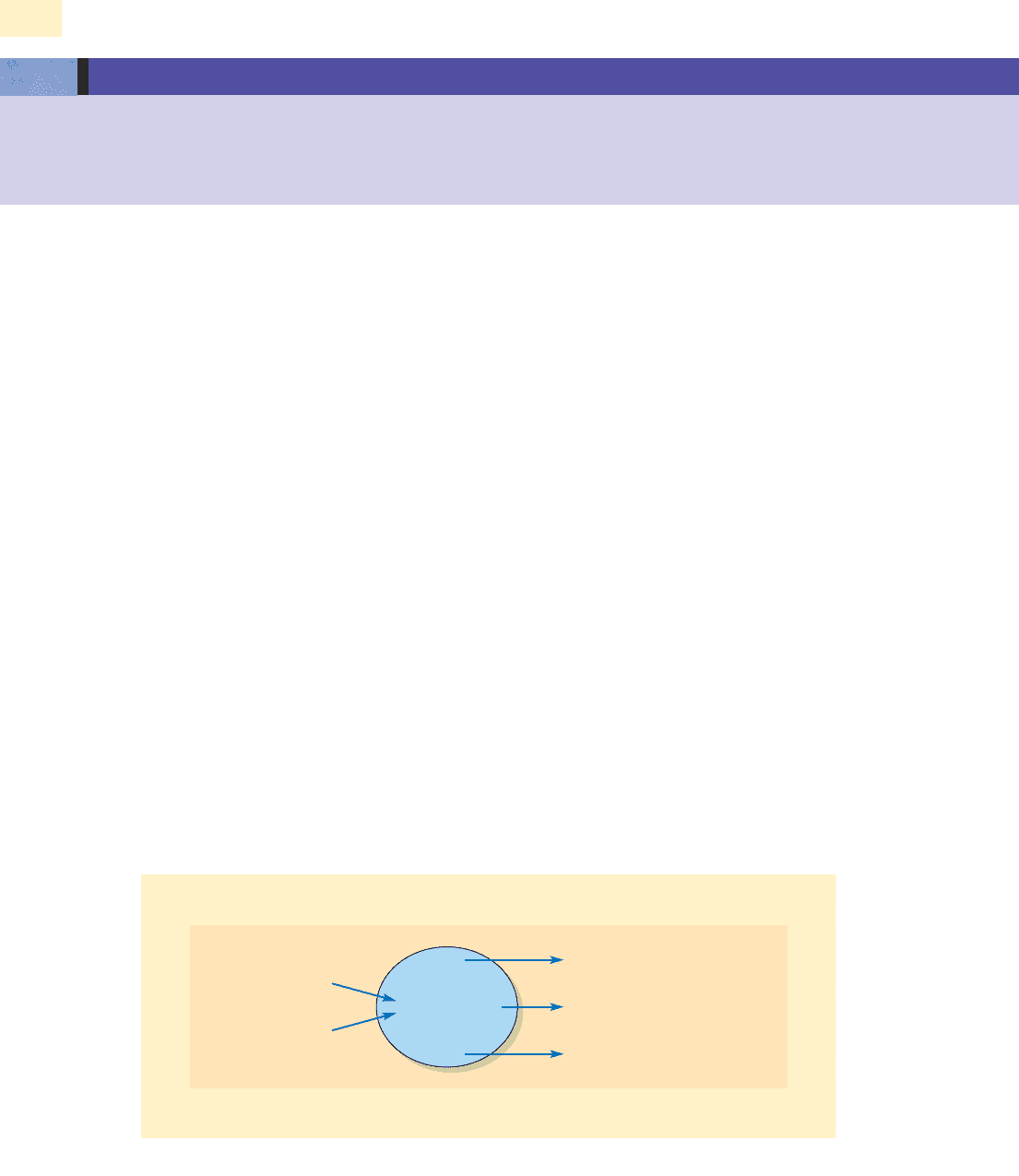
982
PART 8 IMPROVING ORGANISATIONAL PERFORMANCE
MANAGEMENT IN ACTION 23.1
Extracts from Abbey Performance Development Programme
THE THREE KEY SUCCESS FACTORS
To raise the bar on performance we need:
■ Objectives
– Clear and stretching and aligned to our business!
■ Development
– The tools and support to help our people deliver
■ Delivery management
–Proactively address poor performance
– Recognise and Reward good performance
– Really differentiate Recognition and Reward for the top
10%
PERFORMANCE OR CAREER DEVELOPMENT?
■ Performance development supports an individual in
delivering high performance in the short term – it’s about
people doing their jobs better:
– Mandatory
– Universal
–A right
– Focuses 12–24 months
– This job/this level
■ Career development supports longer-term development
of potential in relation to career aspirations:
– Not compulsory
– By invitation
– An investment decision by the company
– Focuses 2–10 years
– Future jobs/future levels – need not always be about
promotion
The performance development process will therefore support
the delivery of annual business goals.
Our Talent Management Strategy will support career
development.
THE WAY FORWARD …
Objective: To deliver capability to the business to manage,
develop and reward performance.
The be effective performance development must:
■ Ensure Alignment. The work people do will be clearly
aligned to business strategy
■ Define Performance. People will have clear objectives (Do
and Be) that deliver business objectives
■ Support Development. People will have plans to develop
their capabilities to best deliver their objectives
■ Recognise success. There is a clear and common under-
standing of what good looks like, so the best people can
be best rewarded
SCOPE AND APPROACH
Effective performance development is dependent on three
processes (see Figure 23.10). These processes must be mod-
ular connecting smoothly.
THE RECOMMENDED PROCESS (2)
Performance targets defined and development plans set.
Individuals own the process (see Figure 23.11).
• Objectives and development
needs are defined
• Business planning sets the
context
• Success is recognised and
input to the reward system
Performance
development
Regulatory
requirements
Job statements
(Star profiles)
Business planning
Reward
In scope
Figure 23.10
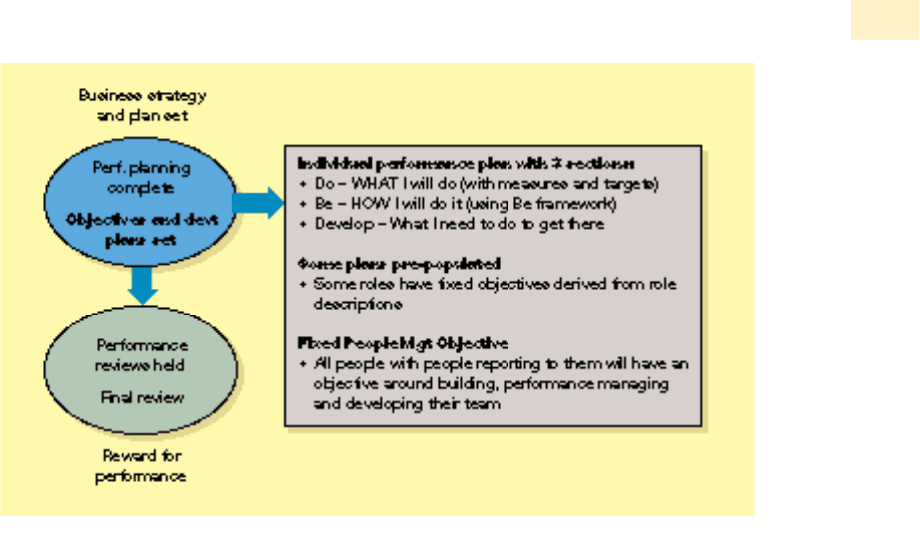
CHAPTER 23 MANAGEMENT DEVELOPMENT AND ORGANISATIONAL EFFECTIVENESS
983
WHAT PERFORMANCE DEVELOPMENT MEANS
TO YOU
We believe everyone can give their best and be successful.
Performance development is about being clear what ‘best’
and ‘successful’ mean in Abbey and for you. You should
understand what’s expected of you and get the right develop-
ment and support to allow you to succeed. And when you’ve
done this, it’s about being recognised and rewarded for your
contribution.
Why performance development is important
We need to create a high performance culture within Abbey in
order to survive, grow and remain competitive in the Personal
Financial Services environment. This means we need to:
■ Develop your ability to perform at your best.
■ Continually stretch your performance to deliver better
service to our customers.
■ Act as one company by supporting each other, removing
obstacles and using your talent to produce better results.
What performance development means to you and
your manager
You are responsible for your performance and your
development.
Your manager is responsible for making sure you are
clear about what you need to do to perform to your best –
they will support you to achieve it.
You and your manager will have regular, open and honest
conversations about your performance. This will involve get-
ting feedback from other people.
PERFORMANCE DEVELOPMENT PLANS
Your performance development plan is a short, simple docu-
ment, which you’ll fill in and agree with your line manager. It
has four sections:
■ Do. What you’ll do will be clearly linked to your business
area’s performance plan so you understand why your role
is important.
■ Be. How you’ll be is as important as what you do. This is
about doing the things you need to do and getting the out-
comes required that helps Abbey to succeed.
■ Develop. Your personal development plan outlines the
support you need to deliver Do and Be.
■ How’s it going? Formal and informal reviews at regular
intervals throughout the year will show you how you’re
doing and lead to a rating, which will help work out any
salary increase.
When writing your performance development plan you’ll need
to refer to your job statement as this sets the context of your
role. Your line manager will have a copy of this.
If you’re in a customer sales role you will need to refer to
Training & Competence activities, including assessments car-
ried out. You’ll need a performance development log to keep
all yours documents.
Performance development is your responsibility, in part-
nership with your line manager. This means you need to make
sure your performance development plan is kept up to date
and that you regularly have quality conversations with your
line manager about how you’re doing.
Figure 23.11
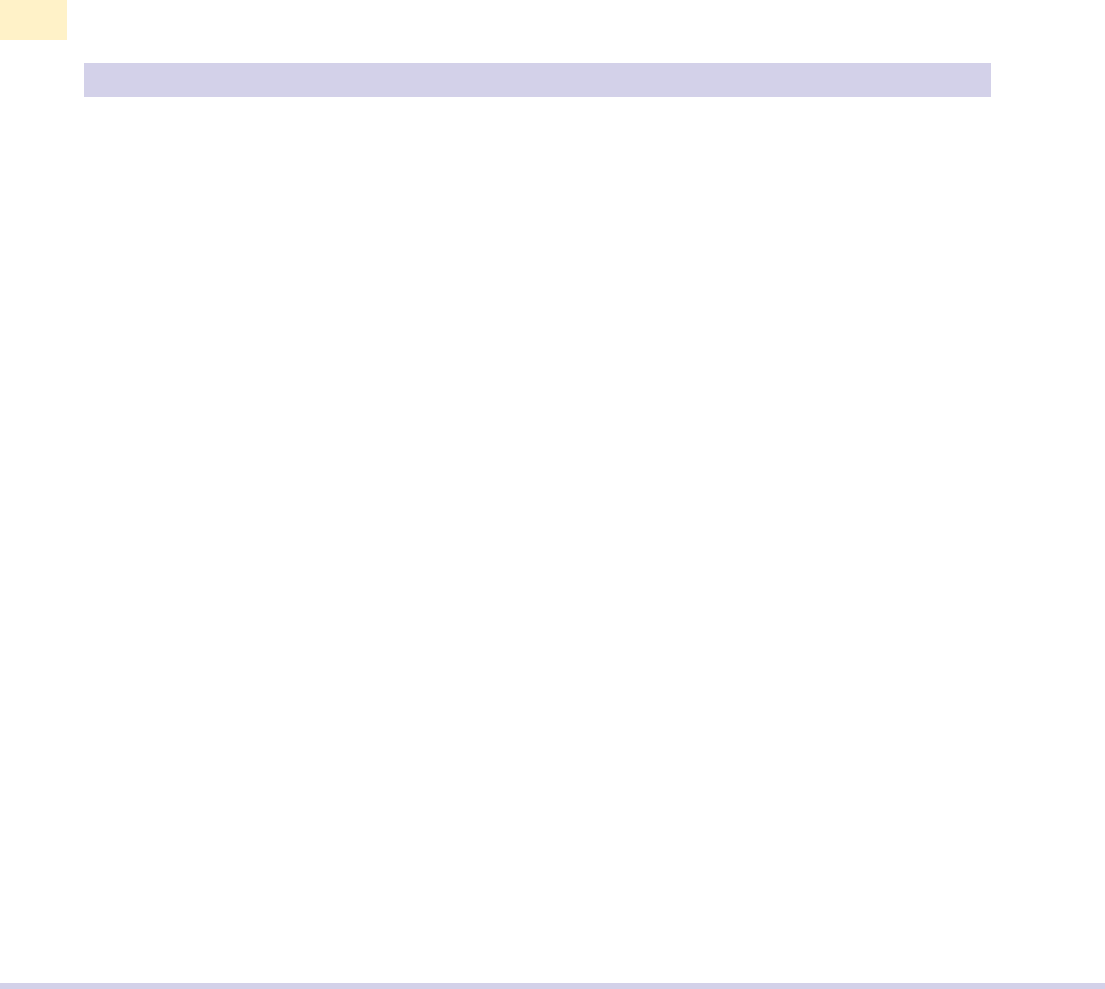
984
PART 8 IMPROVING ORGANISATIONAL PERFORMANCE
WHAT I’LL DO
This page of the performance development plan has three
sections:
■ What I’ll Do? This is what you need to achieve. You and
your line manager will agree a maximum of eight things for
you to deliver. You’ll always be able to see a clear link to
your business area’s performance plan. Some people may
receive completed or partly completed templates for their
roles (for instance in Customer Sales). These may include
your personal objectives and your contribution to your
team objectives including regulatory code requirements
e.g. Anti Money Laundering and Training & Competence.
■ How we’ll measure it. You’ll agree how you’ll be meas-
ured so you know if you’re being successful. These
objectives should be specific, measurable, achievable, rel-
evant and time-based. If your objectives rely on your line
manager’s observation you will get prompt feedback and a
chance to discuss it.
■ How am I doing? You’ll have regular sessions with your
line manager so you know if you’re on track. You should
both bring examples of how your’re doing so the conver-
sation is fair and based on things that have happened. At
least every three months check with your line manager
how you are doing. Use the green light if all is going well, a
star if you’re well ahead. An amber light shows there are a
few problems, and red is for when you both need to take
urgent action.
HOW I’LL BE
The Be framework supports the delivery of the Do objectives
which are important to our business success. ‘How we need
to Be’ is just as important as ‘what we need to Do’.
The Be framework is made up of 24 boxes which contain
the outcomes to help Abbey succeed. The framework will
help you understand how you need to behave to do you job
well. Identify up to eight of these outcomes which should help
you focus your energy in the right places. In some roles, most
of the outcomes will have already been set for you, but you
will still be able to add a few of your own.
This page of the performance development plan has three
sections.
■ How I’ll be. These are the areas you need to focus on in
your day-to-day role.
■ How we’ll measure it. You’ll agree how you’ll be meas-
ured so you know if you’re being successful. Thses should
be specific, measurable, achievable, relevant and time-
based. If these rely on your line manager’s observation
you will get prompt feedback and a chance to discuss it.
■ How am I being? How well are you focusing on the areas
that you identified? What do you need to keep doing, start
doing or stop doing?
It’s important to get feedback for your review how you are
doing with your line manager. Talk to your line manager and
those you work with. This framework will help you give and
get feedback not just on big occasions but also in your day-
to-day work.
HOW I’LL DEVELOP
The development plan is all about making sure you have the
skills and knowledge to deliver what you’ve agreed – this may
be about Do or Be. You must include all specified training rel-
evant to your role.
There are lots of things you can do to develop. You can
get guidance from your line manager, read up on the subject
or talk to someone who’s already good at it.
You need the development as soon as possible so it
doesn’t get in the way of what you’ve agreed to deliver.
There will also be regulatory training you’ll need to do for
your role, it’s up to you to make sure this is done.
New items can be added to your development plan at
any time.
You need to review regularly with your line manager that
you are making progress.
Reproduced with permission. I am grateful to Helen Lloyd, Head of Performance
Development and Lucy Soper, Project Manager, Abbey, for providing this information.
Management in Action 23.1 continued
